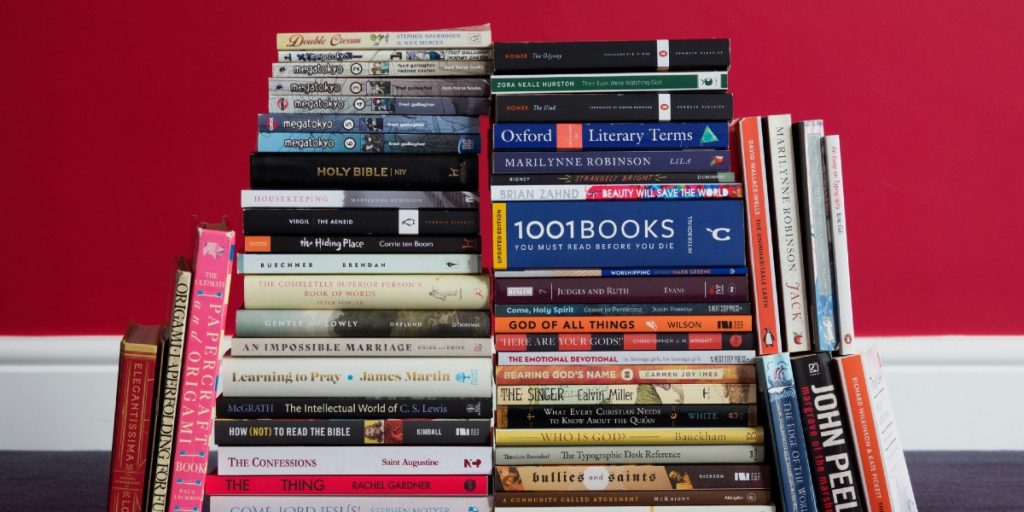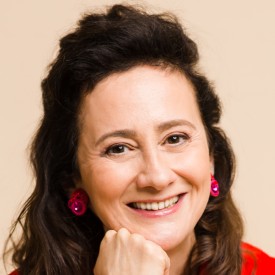From the time she was in high school, Shellye Archambeau had one dream: she wanted to run a business. And she pulled it off, ultimately becoming one of Silicon Valley’s first Black female CEOs. But getting there was far from easy—she had to learn how to assemble a network of mentors, overcome imposter syndrome, and challenge herself in ways she could have never imagined.
The story of how she did it is the subject of her inspiring book, Unapologetically Ambitious: Take Risks, Break Barriers, and Create Success on Your Own Terms, which was named one of the best of the year by our Next Big Idea Club curators. Today one of those curators, Susan Cain, chats with Shellye about cultivating resilience, cutting yourself a break when it comes to work-life balance, and pursuing your ambition—even if you’re an introvert.
You can have anything you want, as long as you’re willing to make the hard choices to get it.
Susan Cain: I want to go through your life lessons. One is the idea of making choices, not sacrifices. A great story you told to illustrate that was the story of your mom, who was making all kinds of trade-offs, but somehow managed to buy a thoroughbred horse. Can you tell us that story?
Shellye Archambeau: My mother worked harder than anyone else in our family, including my dad, and she never worked outside the home. She made homemade meals. She made all of our clothes, and there were four of us growing up. She was at the sewing machine every single night.
I remember once having a conversation with my mother. I’m sitting there cleaning up the kitchen, cleaning up the pie dish, and I was reflecting on the fact that we cut the pie and everybody takes a piece. But mom gets the last piece, which is always the smallest. And I’m like, Man, if that is what being a mom is all about, I’m not doing it.
I said, “Mom, I’m not having kids.” And she’s like, “Why?” I said, “Because I’m not willing to have the last piece of pie after doing all the work.” And she sat me down and said, “Shellye, I don’t care about the pie, so it doesn’t matter that it’s a small piece. The key in life is to decide what you care about—and then to make choices that allow you to get what you care about.”
Well, everybody in my family lived on a budget. My dad got paid twice a month, and on the payday, my mom gave us each envelopes, including my dad. That was our allowance, what we had to spend for two weeks. Everything was tightly controlled—we had to pay her 10 cents every time she drove us somewhere, just so we understood the value of time. Everything was about choices.
“The key in life is to decide what you care about—and then to make choices that allow you to get what you care about.”
Well, a few years pass, and my mother buys a horse. A horse! I mean, we keep our thermostat at 68 degrees in the winter time. That doesn’t mean it can’t be below, but it definitely can’t be above. Whenever you complained about it being cold, she’d say, “Do you want to go to college?” Everything was a trade-off.
My mom was making these trade-offs—sewing our clothes, making all homemade meals, the whole bit—so she could save her dollars and ultimately buy what she cared about. That lesson is one that I’ve carried all through my life: You can have anything you want, as long as you’re willing to make the trade-offs and hard choices to get it.
If you’re faced with a difficult decision, ask these three questions.
Susan: Do you have a process for what to do when you’re making a difficult decision?
Shellye: The questions that I ask myself are: What is it that I want? What has to be true for me to achieve it? And how do I make it true?
For me, I wanted to become a CEO, I wanted a long-term marriage, and I wanted kids. So what has to be true? Well, when it comes to a husband, I need a husband who has the same vision as I do. I need a husband who’s going to be supportive—I have a lot of imposter syndrome issues, so I need help and support with that. I need somebody who’s going to be comfortable in their skin, and confident enough in themselves that it’s okay that I might outshine them.
I had this whole list, and once I have the framework, that becomes my decision criteria. I also get input, and if that changes something on the list, I change it. Then I make my decision, and when people come back and say, “Oh, no, I wouldn’t do that,” I just go back to my framework and say, “Do I still believe all these things?” If I still believe all those things and they all fit with what I’m getting ready to do, then I do it.
“What is it that I want? What has to be true for me to achieve it? And how do I make it true?”
Stop worrying so much about work-life balance.
Shellye: I hate the expression “work-life balance.” Because what is a balance? A balance is a static structure with two weights on either side, and they’re even at all times. I don’t know about you, but my life goes up and down. To be judged on whether I’m keeping these two weights in balance, no matter what kind of rollercoaster I’m on, is ridiculous. I think the whole term was created to make us all feel perpetually guilty, so I don’t use it at all.
What I do instead is take my professional priorities and my personal priorities, and I prioritize ruthlessly. I get done what needs to get done. Then I decide what’s not going to get done, and either find somebody else to do it, or it literally just doesn’t get done. That’s the way I approach it. I don’t know how to do this thing where, “Okay, over here for two hours, and over here for two hours”—no, that’s ridiculous.
Vulnerability can empower and inspire.
Susan: Did you have to make the decision to be as vulnerable as you were in the book?
Shellye: That was a very conscious decision. There are so many books out there that make it sound so easy: I took step one, and step two. A little hurdle popped up at step three, but I handled it alright. The problem is that people read those books, and then they live their own lives—but their own lives are hard. And they think, “Gosh, I’m just not cut out for this because it’s so hard for me.” Well, it’s hard for everybody—they just don’t tell you. So I wanted to tell people, “No, this is hard. There are trade-offs and ramifications. There are all kinds of things that you’re going to deal with, but don’t stop just because it’s hard.”
There are way too many people out there who don’t achieve their aspirations. And it’s not because they don’t have the capability, or because they’re not ambitious, or because they’re not talented. I want them to know that there’s always some way to get around, under, or through. Keep pushing—just get more help.
To enjoy ad-free episodes of the Next Big Idea podcast, download the Next Big Idea App today:






























